Justice is one of the mature, high character virtues which rightfully gives feedback to others in the form of guilt. As opposed to passive-aggressiveness or masochism, which seeks to dump anxiety or guilt on others, justice is meant to encourage a correction of behavior in the areas of the conscience or ethics on the part of the receiving partner, or correction of the naivete or lack of intuition on the part of the overly conscientious partner learning to execute justice.
It is not meant to shame or destroy the other person. That would be revenge, not justice, and a form of suffering. Instead, its purpose in guilting the offending partner is temporary, and needs to end when behavior changes.
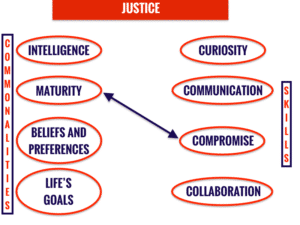 Justice is composed of the Trait or Commonality of Maturity, paired with the Skill of Compromise. It takes maturity to have thoughtful and advanced judgment ability of ourselves and others, and it also is about what is fair for two people, whether one of them has done wrong, or they both have. It assures that both of their behaviors are considered equally until a measure of the balance or imbalance of their ethics is reached, thus the symbol of the scales of justice in courts of law.
Justice is composed of the Trait or Commonality of Maturity, paired with the Skill of Compromise. It takes maturity to have thoughtful and advanced judgment ability of ourselves and others, and it also is about what is fair for two people, whether one of them has done wrong, or they both have. It assures that both of their behaviors are considered equally until a measure of the balance or imbalance of their ethics is reached, thus the symbol of the scales of justice in courts of law.
When these two factors come together as a character virtue, we know from Aristotle's Golden Mean, that there will be two vices possible on a spectrum with the virtue in the middle. The vice of excess Justice is called, Meddling, a form of overinvolvement in the lives of those trying to come to agreement, invading them with narcissistic prejudice. The vice of deficit for Justice is called, Negligence, which is a dereliction of thoughtful wisdom being applied to someone's circumstances.
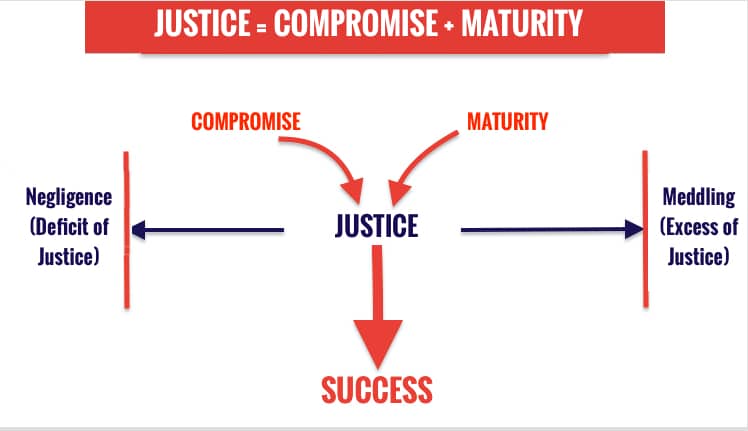 Since nobody has perfect ethics or intuition, nor has an unlimited full tank of them to use in any existing context, all people need both justice, and its end, in satisfaction of both parties, constructively ("Win/Win".)
Since nobody has perfect ethics or intuition, nor has an unlimited full tank of them to use in any existing context, all people need both justice, and its end, in satisfaction of both parties, constructively ("Win/Win".)
Context does matter. For example, what if the decision to be made was, "Should I fire a gun?" There needs to be context. Is the firing of the gun to be in a busy supermarket? Or as part of an army on the front lines of battle? Conscience may tell us about an action, itself, but intuition gives us the context.
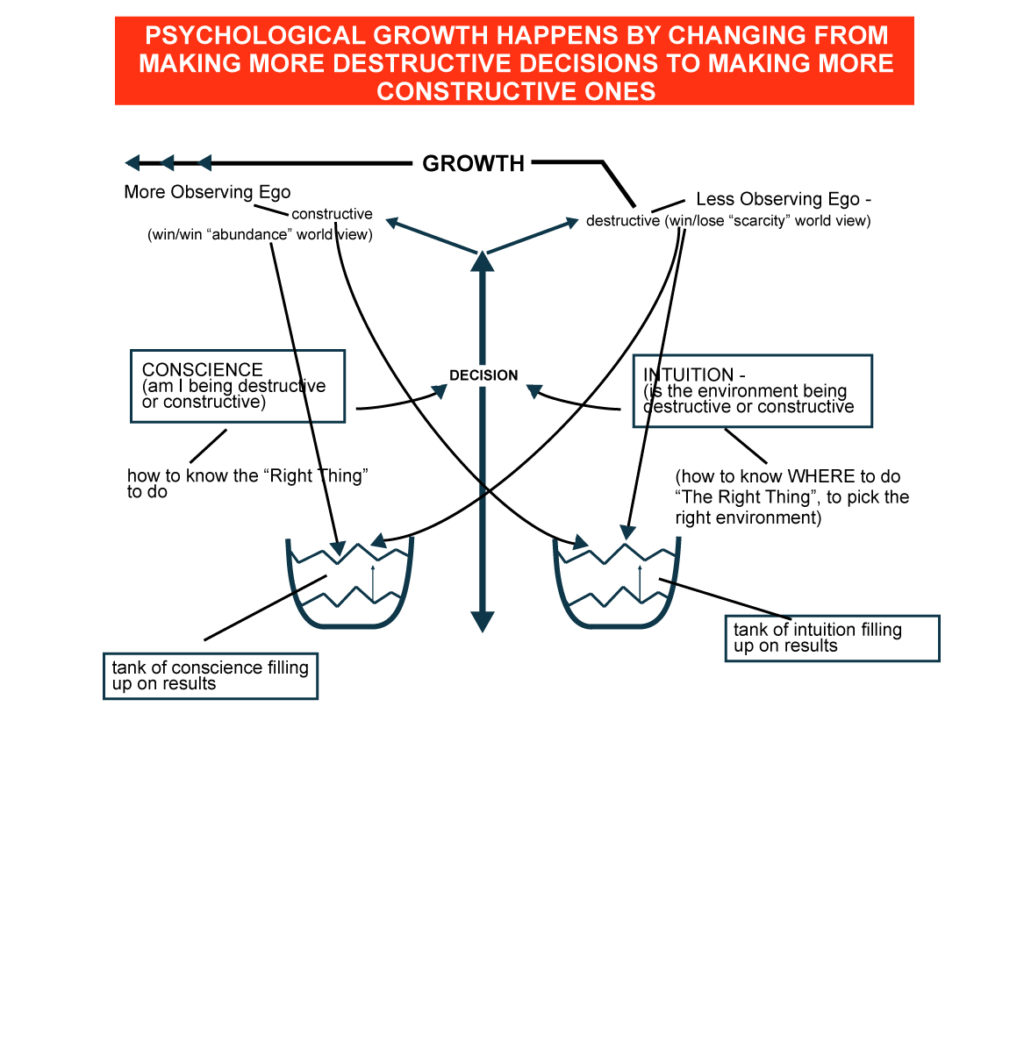


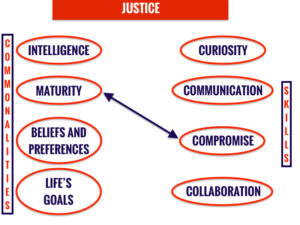
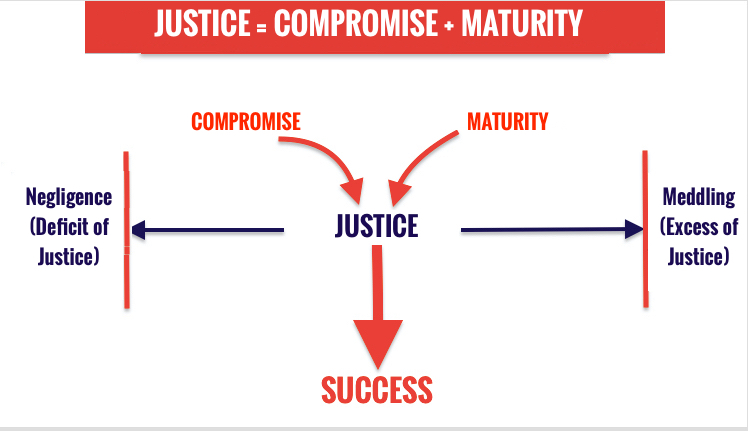 From Aristotle's Golden Mean, we learn that every
From Aristotle's Golden Mean, we learn that every